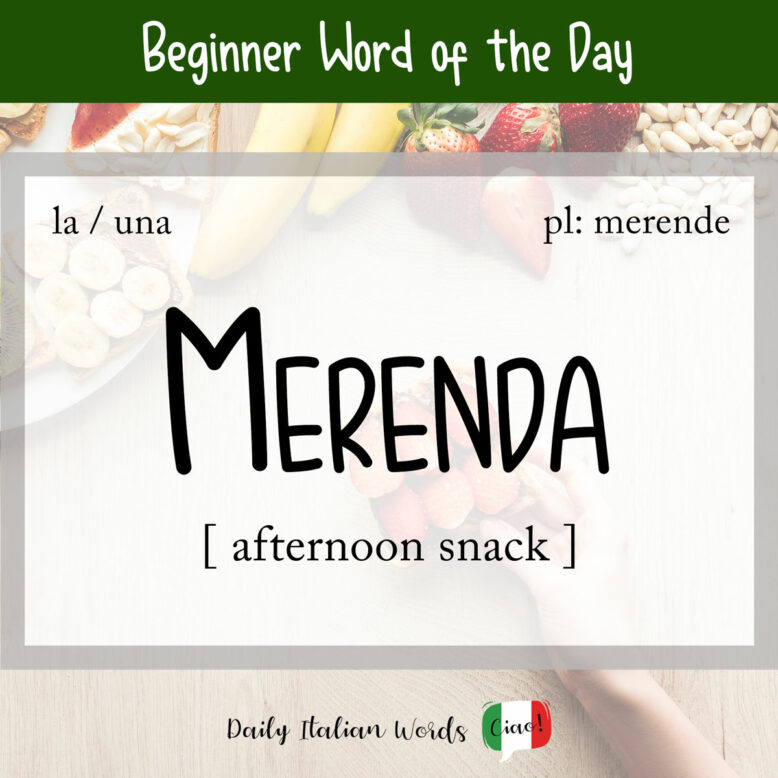In Italy, in addition to the three main meals – colazione (breakfast), pranzo (lunch) and cena (dinner) – there is a fourth that occurs between lunch and dinner called merenda.
Like most words in Italian, merenda derives from the late Latin merere (to deserve), and literally means “things you have to deserve”.
/me·rèn·da/

Merenda is a feminine noun that takes the following definite and indefinite articles:
la merenda
the afternoon snack
una merenda
an afternoon snack
le merende
the afternoon snacks
delle merende
(some) afternoon snacks
Although each region and family is different, merenda tends to be thought of as a child’s snack eaten after school to keep them going until dinnertime (which tends to be quite late in Italy).
A merenda is almost always prepared using ingredients commonly available in the home. For example, the kids I used to au pair for in Turin would always have biscotti (cookies), homemade torta (cake) or a light panino (sandwich) with jam or Nutella. Adults can have merenda too, though it isn’t as common.
Fare (la) merenda is how you would say “to have an afternoon snack” in Italian.
Bambini, smettete di giocare e venite a fare merenda!
Kids, stop playing and come and have your afternoon snack!

Due to the frenetic pace of today’s society, parents in Italy are often tempted to buy merendine (pre-packed cakes sold as snacks for children) from the supermarket rather than prepare a merenda every day from scratch. The word merendina literally translates as “little snack” (merenda + the diminutive suffix -ina).
A popular idiomatic expression in Italy is come i cavoli a merenda (lit. like cabbages at merenda). It is used to describe someone or something that doesn’t belong, fit or match. For example:
Secondo gli italiani, il cappuccino a pranzo sta come i cavoli a merenda.
According to Italians, a cappuccino at lunch is completely out of place.
Heather Broster is a graduate with honours in linguistics from the University of Western Ontario. She is an aspiring polyglot, proficient in English and Italian, as well as Japanese, Welsh, and French to varying degrees of fluency. Originally from Toronto, Heather has resided in various countries, notably Italy for a period of six years. Her primary focus lies in the fields of language acquisition, education, and bilingual instruction.


